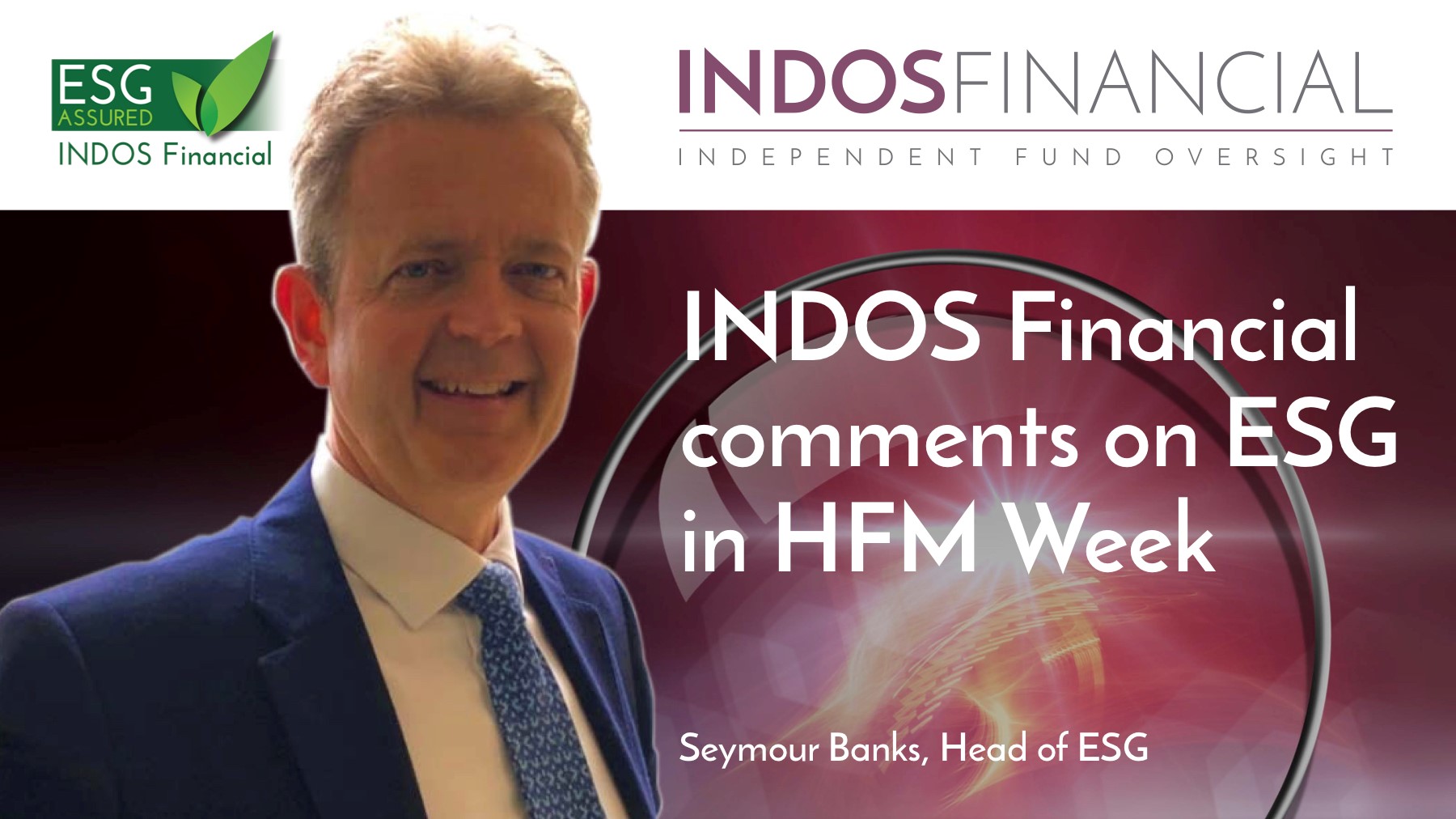This INDOS Financial article was first published by HFM Week can also be read here.
As market regulators and institutional investors become increasingly ESG (environment, social, governance) aware, fund managers are responding in kind, redoubling their allocations into ESG assets and taking a more activist approach when confronting companies with poor sustainability track records. A report published by the securities services arm at BNP Paribas found 75% of asset owners and 62% of asset managers hold 25% or more of their investments in funds incorporating ESG. Moreover, the survey revealed that 90% of allocators predicted that 25% of their funds would be invested in ESG in the next two years.
The intricacies and contradictions of ESG
Labelling ESG, however, is not straightforward. Firstly, opinions about ESG are hugely varied across different investors. Whereas some institutions may object to any investment whatsoever in greenhouse gas emitting industries, others may be more sympathetic, especially if managers are exercising their shareholder rights to lobby for positive change. It is clear different clients will have different objectives. For instance, the interests of an art foundation are likely – in some instances – to be at odds with the goals of a religious charity. As such, some managers may have no option but to create separately managed accounts to accommodate their investors’ bespoke needs, especially if they have conflicting worldviews.
In addition, regulators and supranational bodies have yet to properly define ESG. While common reporting standards do exist – such as the Financial Stability Board’s (FSB) Task Force on Climate Related Financial Disclosures (TCFD) and voluntary guidelines including the UN’s Sustainable Development Goals (SDGs) – ESG investing/reporting is not a mandatory requirement. That said, the European Commission (EC) is adopting reforms to incentivise more institutional investors to report on their ESG assets, while it is also coming up with a taxonomy outlining a framework for what it considers to be sustainable economic activity.
Regulators elsewhere – including Asia-Pacific – are also expected to introduce their own rules on ESG. But this absence of regulatory harmonisation and the increasing abundance of industry standards – some of which are conflicting – makes it exceptionally difficult for asset managers to formulate comprehensive and arguably compliant ESG strategies. The disconnect is not helped either by rating agencies – who having identified a commercial opening with the emergence of ESG investing – are now producing their own ESG scores based on proprietary methodologies. As a result, their ESG scoring is often contradictory.
Disclosing ESG correctly to clients
All of this uncertainty and subjectivity has led to a notable increase in greenwashing. To summarise, this is when an asset manager markets itself as being green but is not, and it is an issue which some investors say has become increasingly ubiquitous in the industry. It is true that a few fund administrators are trying to mollify this problem by developing their own standardised ESG reporting templates, but this runs into complications in itself. Just as the scores generated by competing rating agencies are visibly different, so too will be the fields in the templates generated by all of these administrators. As fund administrators vie to create their own custom ESG reports, institutional investors risk being confused further.
Efforts are underway to standardise the whole ESG disclosure process, although the focus is concentrated mostly on the environmental angle as opposed to the social element. This is because it is much easier to quantify environmental impact than it is social impact. While harmonisation is welcome and should be actively encouraged, consensus is unlikely to be achieved anytime soon. That said, managers cannot afford to wait for industry-wide standards to develop, mainly because their investors want ESG disclosures to be made now.
Instead, managers will need to continue producing bespoke ESG reports for clients, outlining what their unique corporate position on ESG is, along with details about their investments. It is strongly advised managers clearly notify investors that the contents of these reports are subjective and open to interpretation, and may not even fully tally with future regulations. If clients are to acquire a better understanding about ESG, then their managers need to be open about the reasoning and logic behind their ESG investments.




